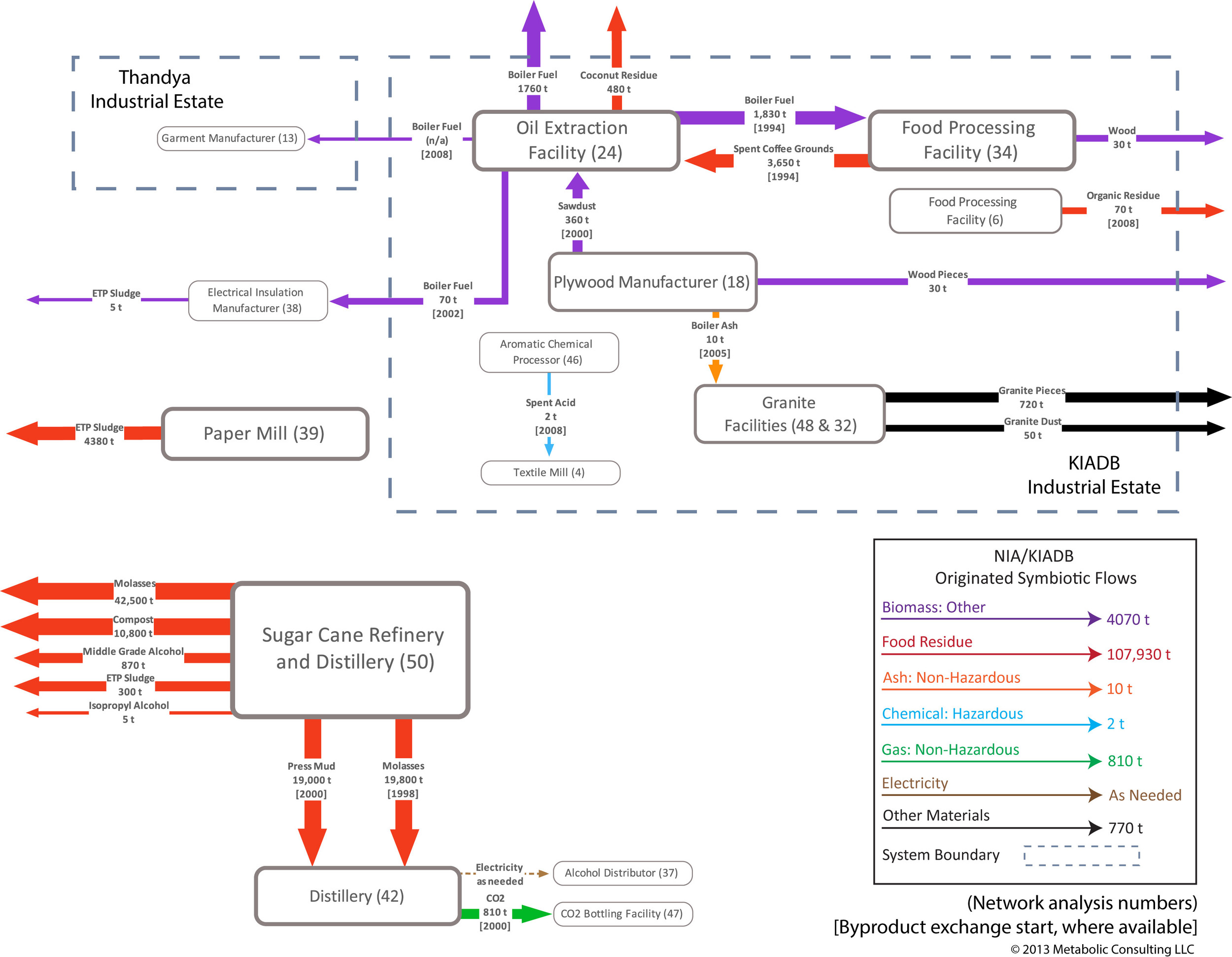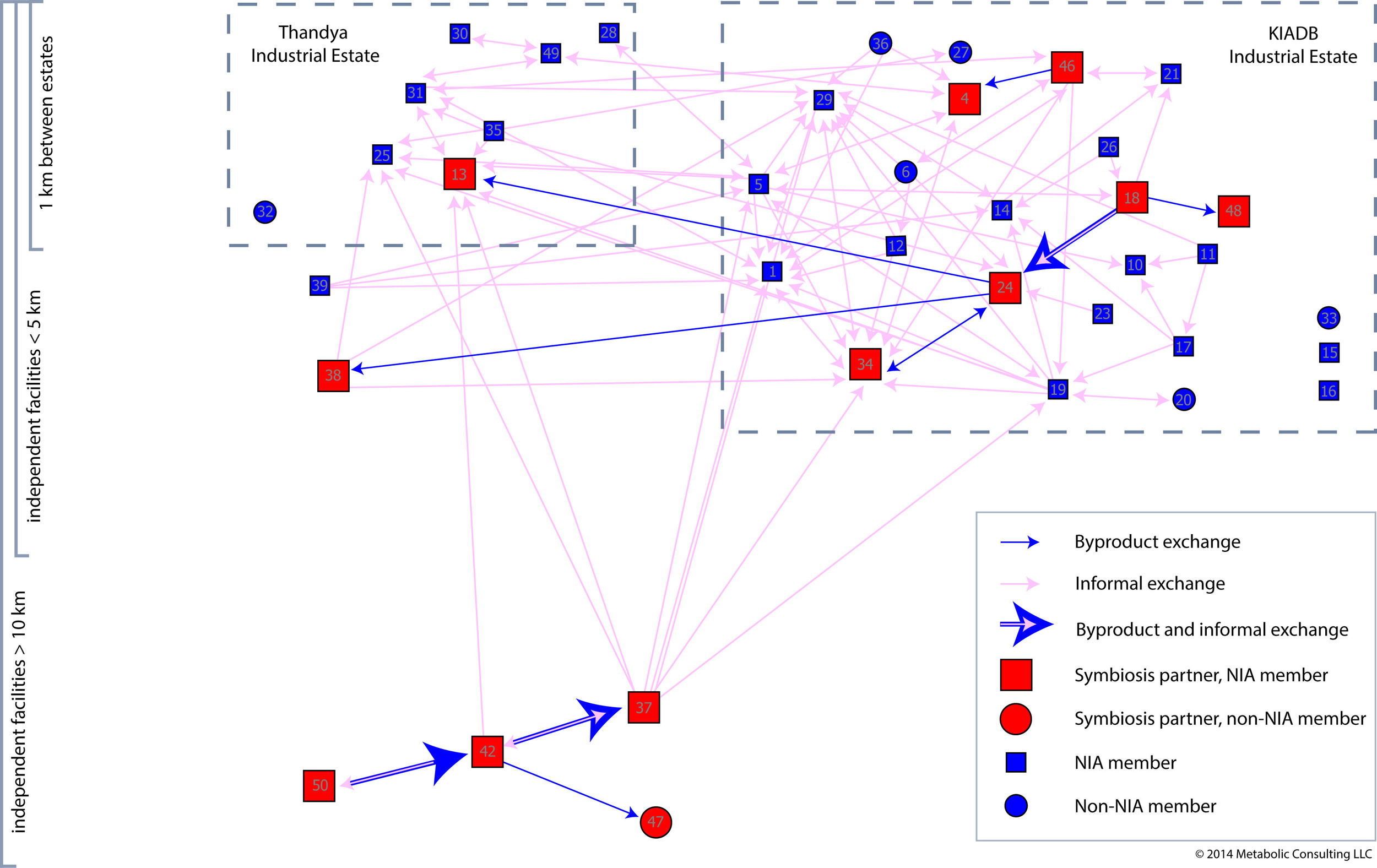Ariana led a project with collaborators from the Yale Center for Industrial Ecology, the Resource Optimization Initiative, and the Illinois Institute of Technology to study the industrial system in Nanjangud, India from 2008-2012.
It quantified and mapped the material, energy, and water flows and social patterns of 45 diverse industrial facilities alongside gathering and analyzing the network of between key managers at each company. The project was the first of its kind in India and the second in the world.
The results found a recycling and reuse rate of 99.5% of the nearly 900,000 metric tons of annual wastes as well as shared mental norms between managers at facilities that engaged in trading wastes for reuse. Additional research conducted a consequential life cycle inventory of greenhouse gas emissions and social impacts created by future waste-to-energy opportunities.
In addition to publication, results from this project were presented at the 2009 and 2011 conferences of the International Society for Industrial Ecology and the 2009 Next Generation Infrastructure conference.
Further Reading
Bain et al. 2010. Industrial symbiosis and waste recovery in an Indian industrial area. Resources, Conservation and Recycling.
Ashton and Bain. 2012. Assessing the short mental distance in eco-industrial networks. Journal of Industrial Ecology.
Ariana initially created the Nanjangud project when she was a Master's Candidate at the Yale School of Forestry and Environmental Studies. The Yale Center for Industrial Ecology and Yale Tropical Resources Institute funded the project's field research. Core research team:
Weslynne Ashton, Illinois Institute of Technology
Megha Shenoy, Resource Optimization Initiative
Marian Chertow, Yale University
Trisha Shrum, Harvard University
We are also deeply grateful to the Karnataka State Pollution Control Board and the Nanjangud Industrial Association.

